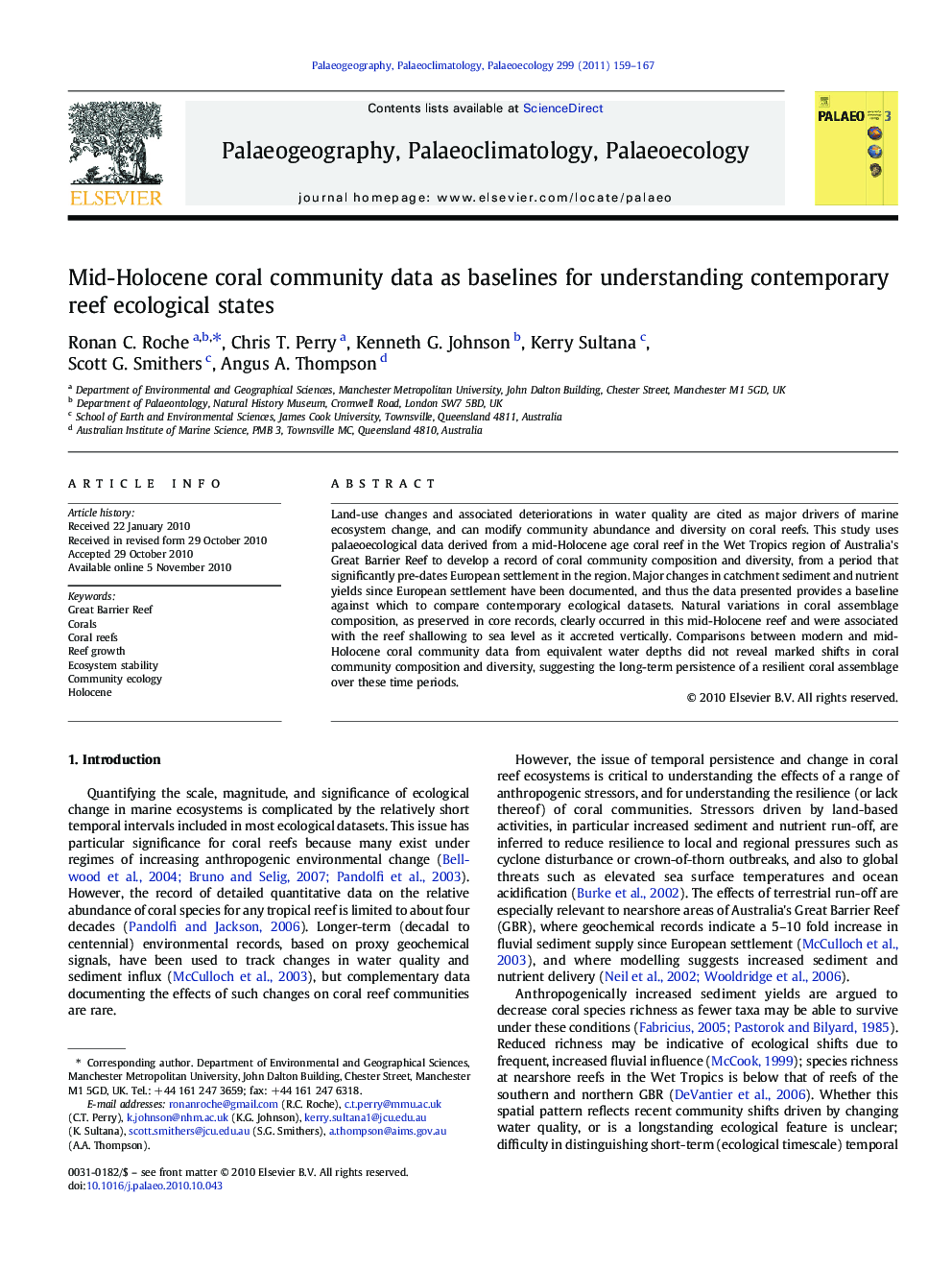| Article ID | Journal | Published Year | Pages | File Type |
|---|---|---|---|---|
| 6350675 | Palaeogeography, Palaeoclimatology, Palaeoecology | 2011 | 9 Pages |
Abstract
Land-use changes and associated deteriorations in water quality are cited as major drivers of marine ecosystem change, and can modify community abundance and diversity on coral reefs. This study uses palaeoecological data derived from a mid-Holocene age coral reef in the Wet Tropics region of Australia's Great Barrier Reef to develop a record of coral community composition and diversity, from a period that significantly pre-dates European settlement in the region. Major changes in catchment sediment and nutrient yields since European settlement have been documented, and thus the data presented provides a baseline against which to compare contemporary ecological datasets. Natural variations in coral assemblage composition, as preserved in core records, clearly occurred in this mid-Holocene reef and were associated with the reef shallowing to sea level as it accreted vertically. Comparisons between modern and mid-Holocene coral community data from equivalent water depths did not reveal marked shifts in coral community composition and diversity, suggesting the long-term persistence of a resilient coral assemblage over these time periods.
Related Topics
Physical Sciences and Engineering
Earth and Planetary Sciences
Earth-Surface Processes
Authors
Ronan C. Roche, Chris T. Perry, Kenneth G. Johnson, Kerry Sultana, Scott G. Smithers, Angus A. Thompson,
